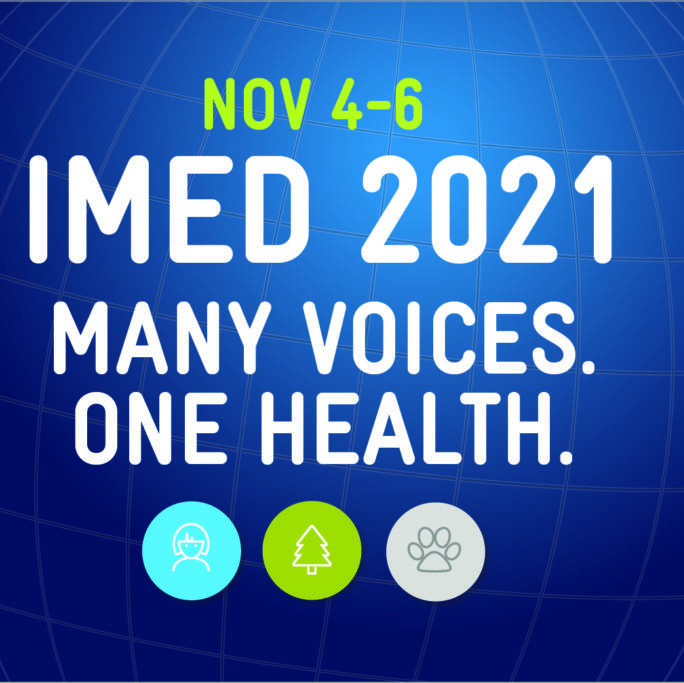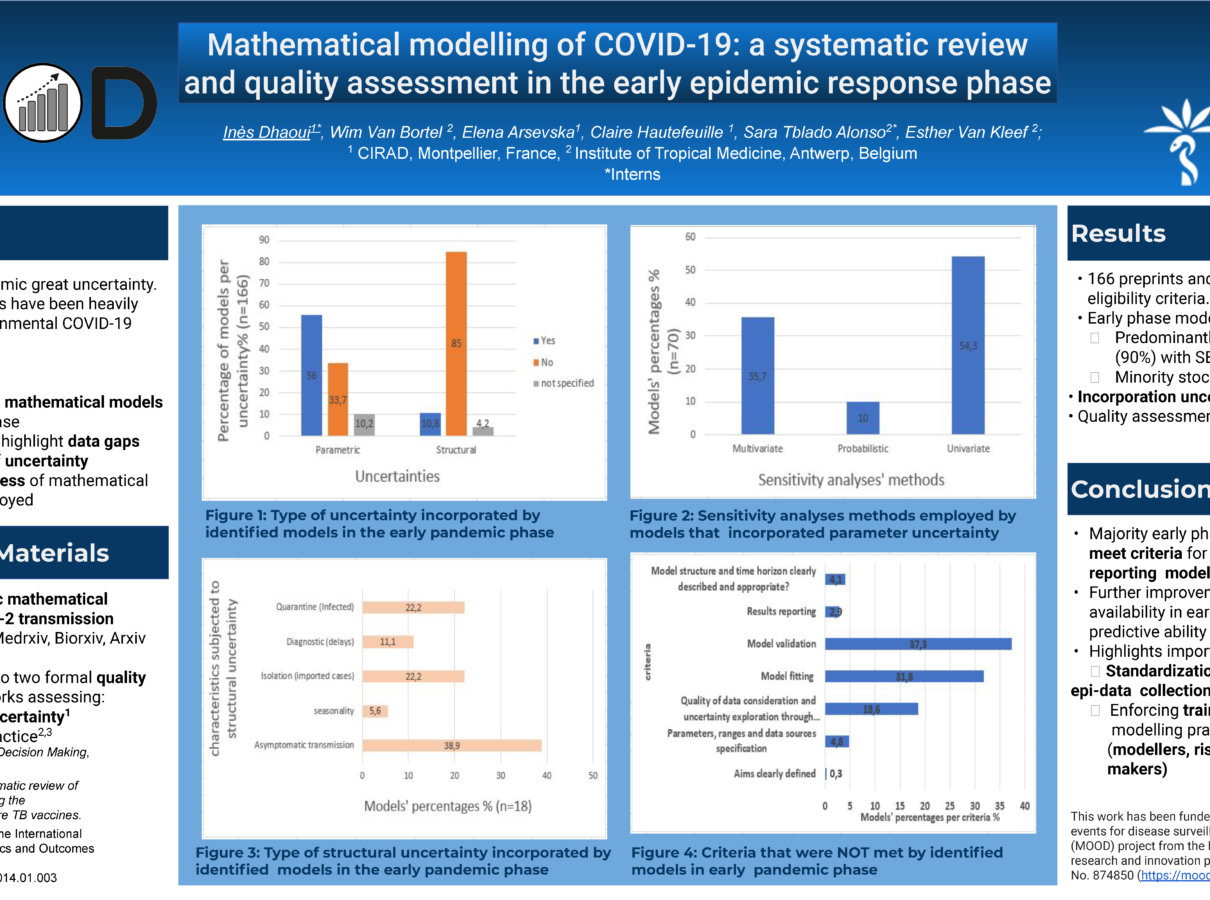Research work conducted within the MOOD project aims at improving epidemic surveillance and preparedness in Europe and across the world. Sharing scientific results becomes therefore essential to better coordinate and integrate multidisciplinary analyses worldwide, as happened at the Eighth International Meeting on Emerging Diseases and Surveillance, IMED 2021, organized by the Program for Monitoring Emerging Diseases (ProMED) and MOOD’s partner International Society for Infectious Diseases (ISID), along with collaborating organisations.
The virtual event brought together leading scientists, clinicians, policymakers, veterinarians, and ecologists to share breakthroughs in the emerging diseases community.

As part of the global OneHealth community, the MOOD project contributed to the international discussion featuring one key-note talk with Mathieu Roche, Senior Research Scientist at CIRAD, France, on ‘Mining Online and Social Media to Analyze Epidemic Periods’.
Given IMED’s One Health focus, talks and panel discussions addressed challenges and opportunities on how to detect, monitor, understand, prevent, and respond to outbreaks of emerging and re-emerging infectious diseases, and toxic exposures across all species and regions of the world.
Ines Dhaoui, Veterinary Epidemiology Intern at CIRAD and MOOD representative, shared her recent work identifying areas for improvement in model-based decision-making for future unknown disease threats through one of the 7 MOOD e-posters. Within the MOOD project, she conducted a systematic review and a quality assessment of mathematical modelling studies estimating the epidemiological impact of COVID-19 and non-pharmaceutical interventions in the early response phase.
‘The IMED conference was very interesting. Indeed, attending the scientific sessions and being able to view different posters was enriching’ writes Ines in an online interview, cherishing a better and more detailed idea of the progress of other works carried out on the pandemic.
At the IMED conference, more than 300 e-poster were submitted from all over the world, and Ines’s work was posted in an online setting that allowed other attendees to read it and engage via the Q&A section.
“Sharing MOOD’s research at IMED would arise awareness of other researchers of the epidemic intelligence systems’ importance to face new disease threats, including emerging diseases of known or unknown origin.” Ines points out, calling for international efforts to integrate and coordinate multiple disciplines to enhance epidemic and pandemic preparedness.
Ines’ work within MOOD sought to understand existing gaps when translating data science-based tools into effective support for policy-makers in the context of future threats from unknown diseases. The results of her work identified existing challenges in the mathematical modelling of emerging diseases and emphasised the minimum criteria for estimating and reporting reliable models, among which model fitting and validation, data quality consideration and uncertainty exploration through sensibility analyses.

Along with MOOD’s line of work, the research conducted by the veterinary epidemiologist provided new insight on how models can be improved to enhance effective informing of decision-making and their uptake.
With an eye on the future, Ines is now focussing on writing a paper about the quality assessment of mathematical models estimating the epidemiological impact of COVID-19 and the effectiveness of control measures. The abstract will be shortly available in the International Journal of Infectious Diseases. “Currently, I would like to continue working on infectious disease modelling for my professional career. Therefore, I am looking for a PhD or a position in infectious disease modelling”, she concludes.
With the support of the MOOD project, IMED continues to ‘serve as a true One Health forum where those working in diverse specialities and regions can present, discuss, and challenge one another with findings and new ideas’.
All e-posters are now available on our website. Find out more about Ines’ work and MOOD research here.


